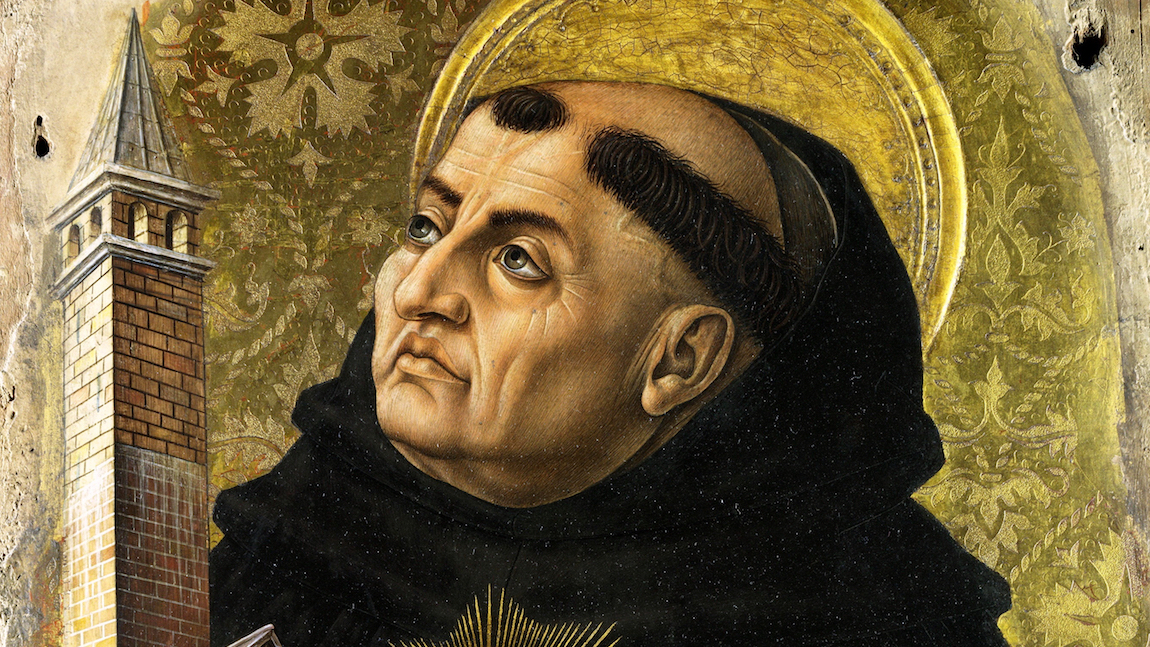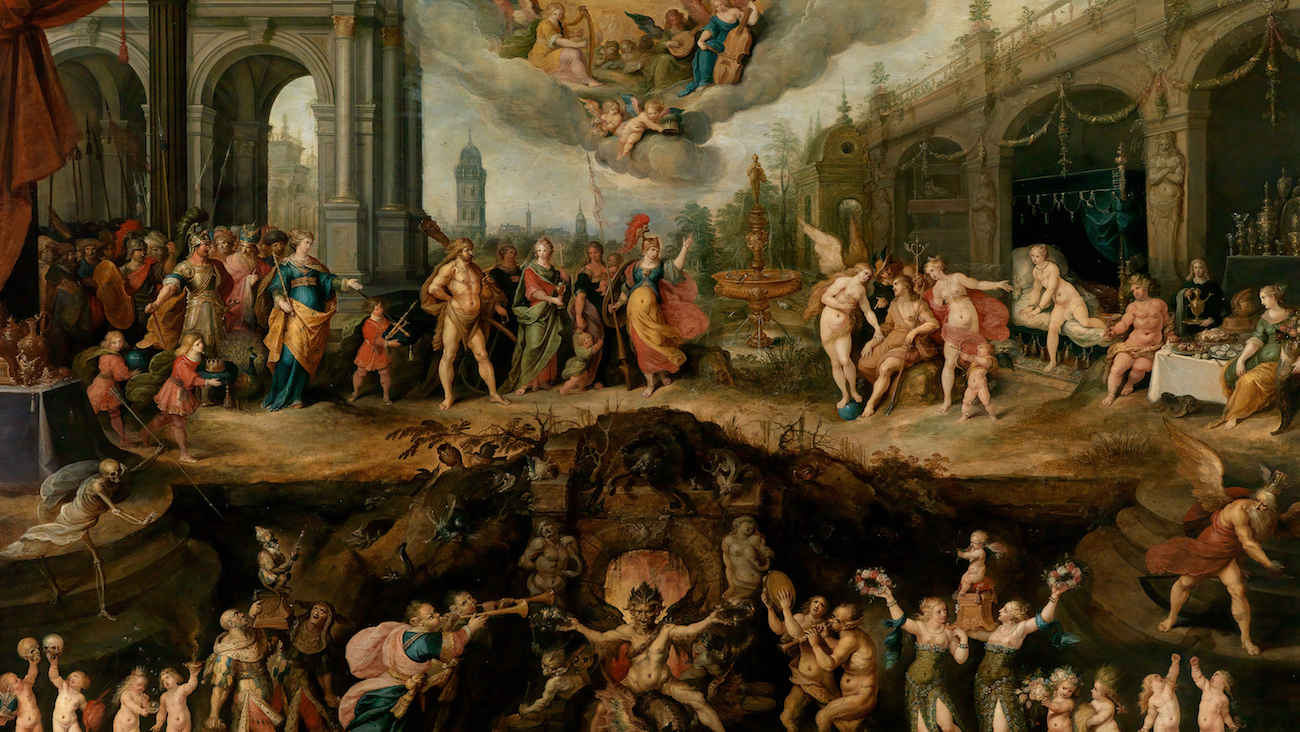On Tuesday 28 January 2020, as the Church celebrated the liturgical memorial of the Angelic Doctor, Saint Thomas Aquinas, I was drawn to words written by Pope Benedict XVI:
“Aquinas reminds us with his very life, that it is always illumined by prayer, by the light that comes from on high. Only one who lives with God and with the mysteries can also understand what they say.” (General Audience of the 23th of June 2010 on Saint Thomas Aquinas part 3)
His direct loving relationship with God made Thomas understand many things. In his Catena Aurea, Thomas sets us off on our journey towards God by establishing for us the essence of true love. He tells us: Love embraces two lives; active in the love of our neighbour, contemplative in the love of God. But how are we to love God? Before replying to this valid question, let us see the full extent of God’s love for us. In his Cathecism, Aquinas explains: There is no greater proof of God’s love than that God the Creator became a creature, that our Lord became our Brother, and that the Son of God became the Son of man…. The very thought of this should kindle and inflame our hearts with the love of God (The Aquinas Catechism, 36).
Within the same Catechism, Aquinas explicates that the more one is united with God, the more one starts loving Him. He says in no. 96: Union with God consists in knowing God perfectly. For the better one is known, the more perfectly one is loved. It is clear that charity is the soul for loving God. Without charity, the queen of all virtues, man’s pious efforts are practically useless. This is attested to in his book The Ways of God for Meditation and Prayer, wherein Thomas writes: Prayers, almsgiving, fasting, and pilgrimages accomplished without charity are insufficient to efface the sins of those who practice these devotions (The Ways, 58). In another part of his writing corpus, the Angelic Doctor affirms: Loving corresponds to love … The love whereby God is loved out of charity surpasses all love. Hence it is written: O taste and see that the Lord is sweet (as quoted in Thomas Aquinas: Selected Writings, edited by Rev. M. C. D’Arcy, 183 and p.215).
Since it is the virtue of virtues, charity should be pursued by the Christian at all costs. In his famous treatise, Summa Theologiae, Saint Thomas explains this so well when he says: Charity is the root of all the virtues and gifts (Summa Theologiae, 1759). Since to love God is something greater than to know Him, especially in this state of life, it follows that love of God presupposes knowledge of God (Summa, 1308). It is charity that unites us to God. Who is the last end of the human mind, since he that abideth in charity abideth in God, and God in him (1 Jn 4:16). Therefore the perfection of the Christian life consists radically in charity (Summa Theologiae, 1950). Again, the Summa recalls this teaching concerning charity: Since a mother is one who conceives within herself and by another, charity is called the mother of the other virtues, because, by commanding them, it conceives the acts of the other virtues, by the desire of the last end (Summa, 1275).
Yes! Indeed! It is charity which gives us that much-needed self-control to put to its place, first and foremost, our tongue! Aquinas tells us: He who does not bridle his tongue falls into many sins …. He who bridles his tongue acquires many good things (The Homilies of Saint Thomas Aquinas upon the Epistles and Gospels for the Sundays of the Christian Year to Which Are Appended the Feast-Day Homilies, 77). In his Summa Theologiae, the great Aquinas reminds us: Man easily offends in words (Summa, 1580).
It is charity which fills us with courage. In his Summa, Aquinas says: Our love for God is proved to be so much the stronger, as the more difficult are the things we accomplish for its sake (Summa, 1310). In his Catena Aurea, Thomas affirms: The general in a battle loves best that soldier who turns in this flight and courageously presses the enemy, than him who never turned his back, yet never did any valorous deed (.631).
Furthermore, charity helps us grow in the virtue of perseverance. We ought to persevere in good …. For the reward is earned by perseverance alone (The Homilies, 123). If endured in love eternal blessedness is the fruit of labour (The Homilies, 38). We must run perseveringly, so that we forsake not the course, nor fail of well-doing―(Matt. 24:13), He that shall endure unto the end, the same shall be saved (The Homilies, 35). Patience is chiefly needed to enable us to persevere, and to bear all the troubles which come upon us in this world (The Homilies, 35). These observations by Thomas on the essential virtue of patience can be considered as his own commentary on Christ’s words which we find written in Luke’s Gospel: And as for that in the good soil, they are those who, hearing the word, hold it fast in an honest and good heart, and bring forth fruit with patience (Luke 8:15).
The virtue of charity instructs the believer to be temperate. In the Summa, Thomas enlightens us by the following insight: The gift of fear has as its principal object God, Whom it avoids offending…. Man stands in the greatest need of the fear of God in order to shun those things which are the most seductive, and these are the matter of temperance (Summa, 1765). Thomas emphasizes to us that temperance is a means to an end, namely our real happiness. The end and rule of temperance itself is happiness. Adding to this, temperance restores our reason’s inherent dignity by allowing it to exercise its God-given superiority over desires and pleasures. The very fact that the reason is able to moderate desires and pleasures that are furthest removed from it, proves the greatness of reason’s power. This is how temperance comes to be a principal virtue (Summa, 1770). Perhaps one of the most beautiful lines Thomas gives us in the Summa, when speaking about temperance, is the subsequent: Athletes and soldiers have to deny themselves many pleasures, in order to fulfil their respective duties. In like manner penitents, in order to recover health of soul, have recourse to abstinence from pleasures, as a kind of diet, and those who are desirous of giving themselves up to contemplation and Divine things need much to refrain from carnal things (Summa, 1772).
When stating that charity is the root of all the virtues and gifts (Summa, 1759), Thomas is greatly showing that to love surpasses being loved, for which reason the greater love is on the part of the benefactor (Summa, 1303). By itself, this magnificently illustrates how Thomas Aquinas is a sound and most valid spiritual guide and companion for those who want his wise, caring and flourishing accompaniment in our turbulent times.








